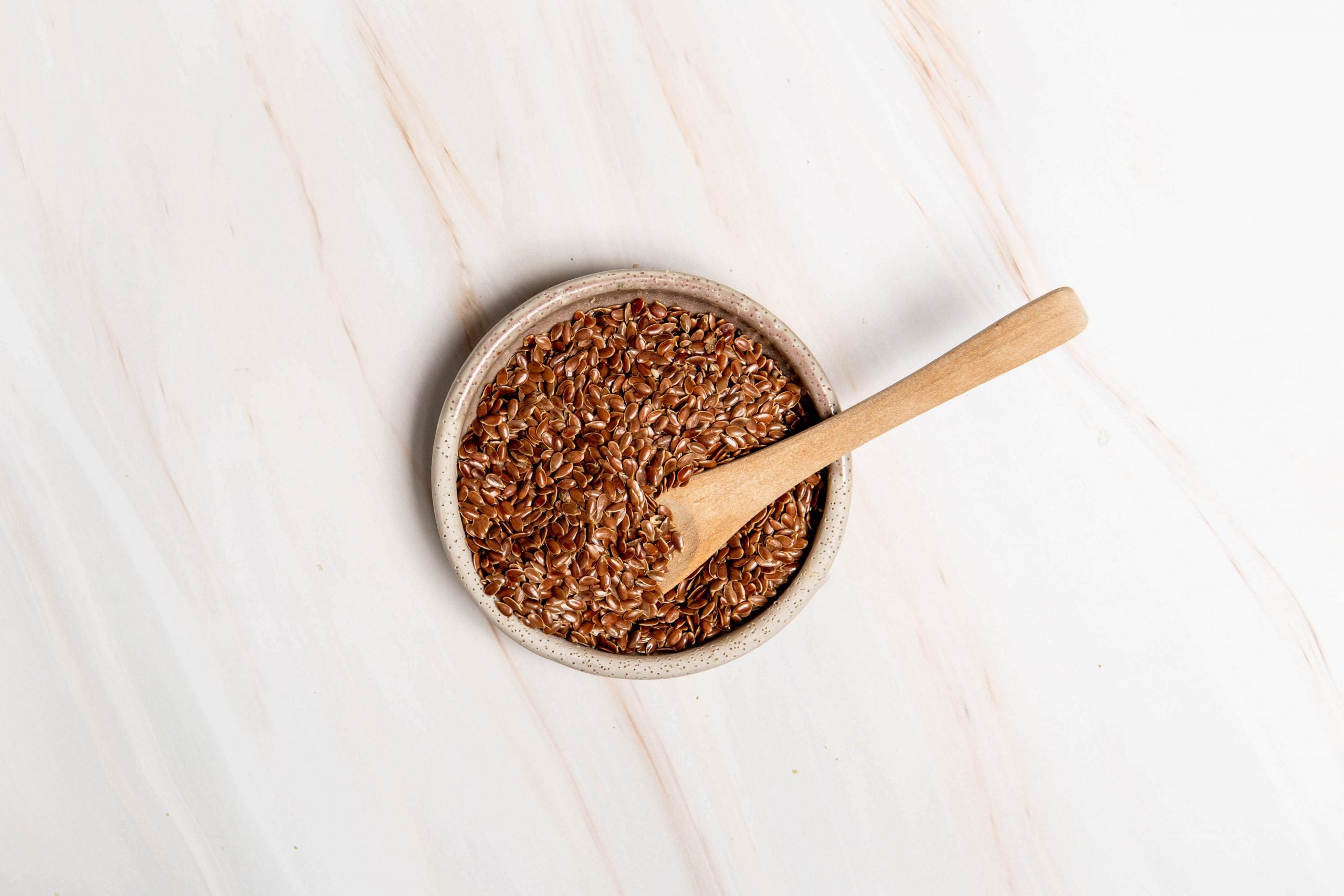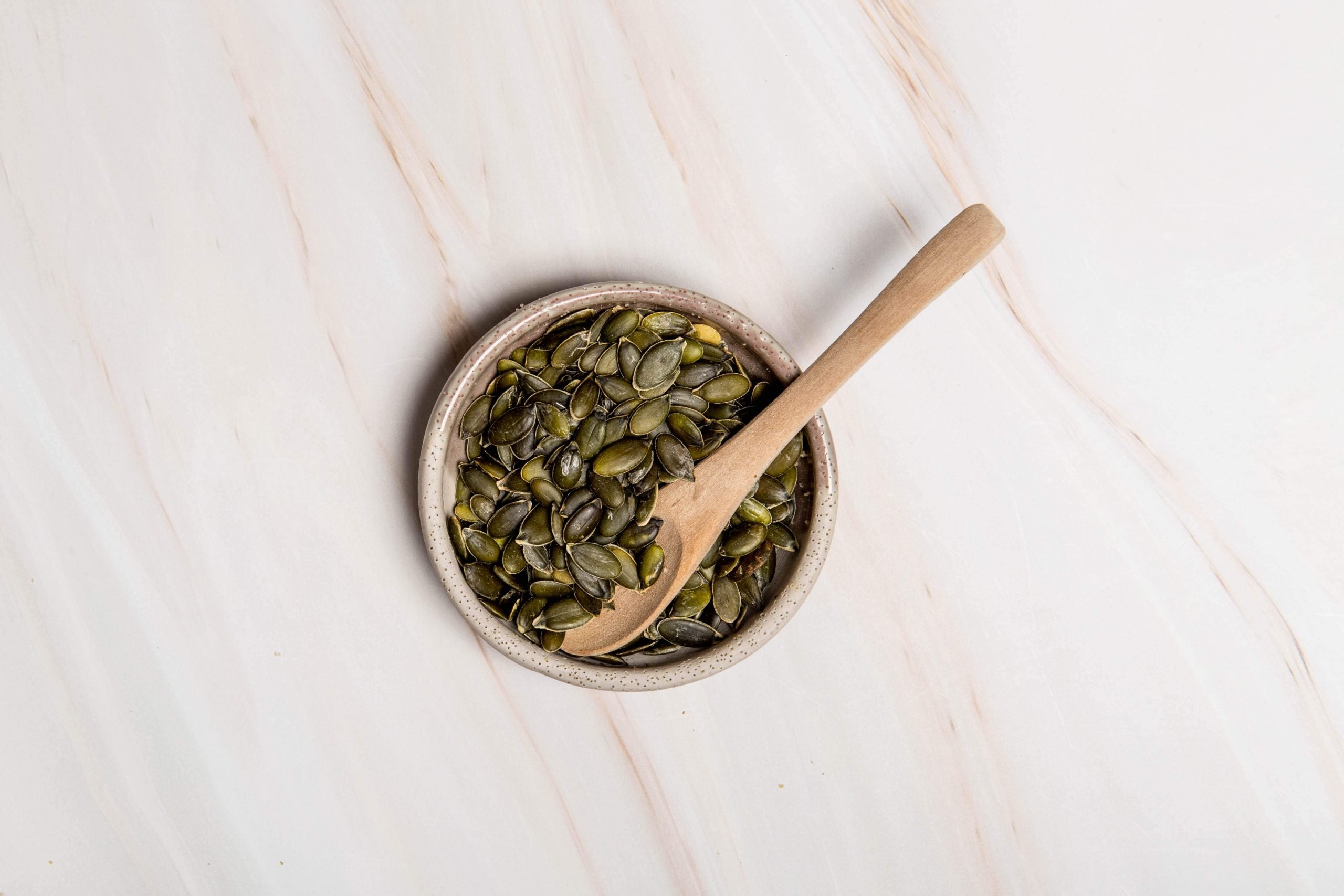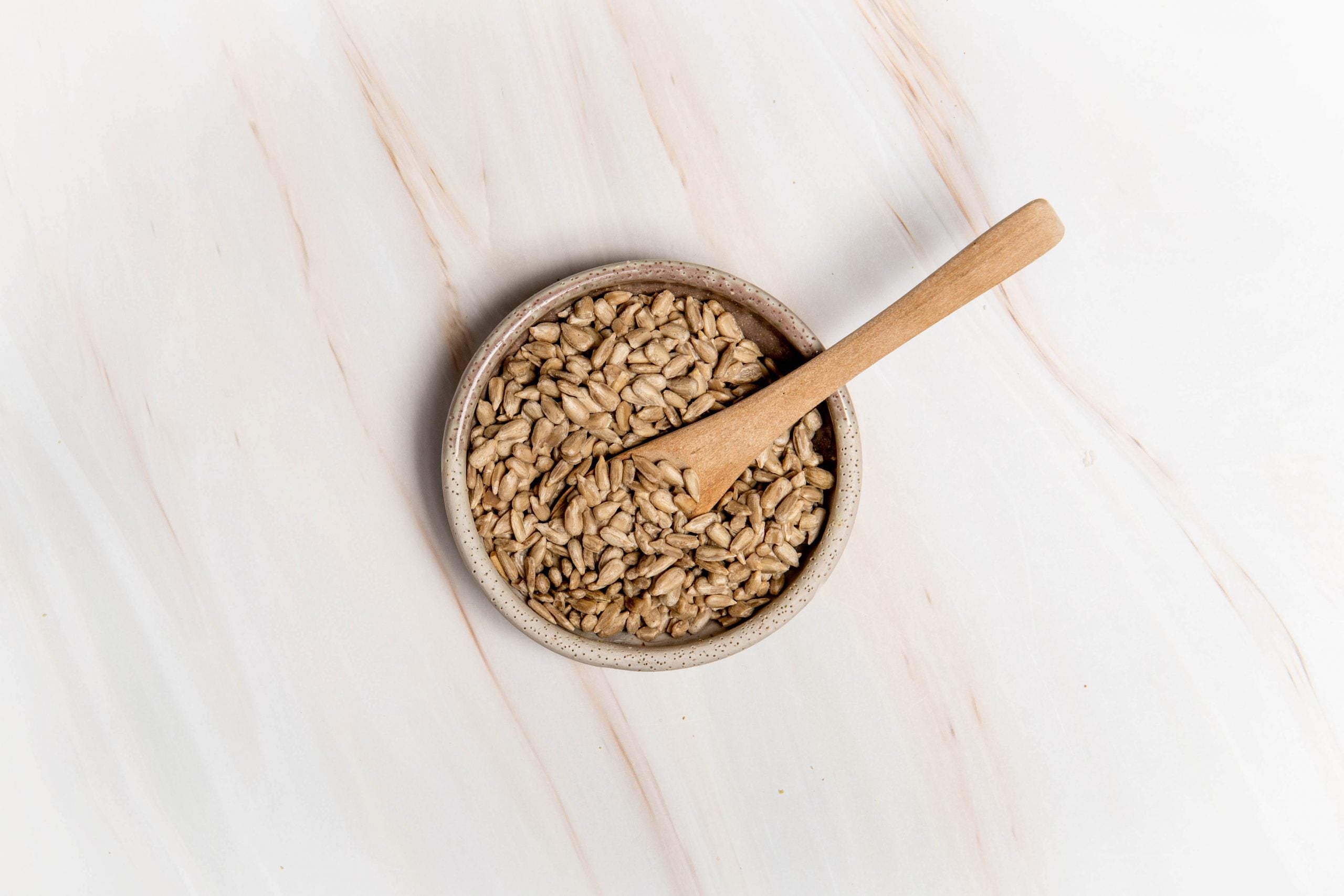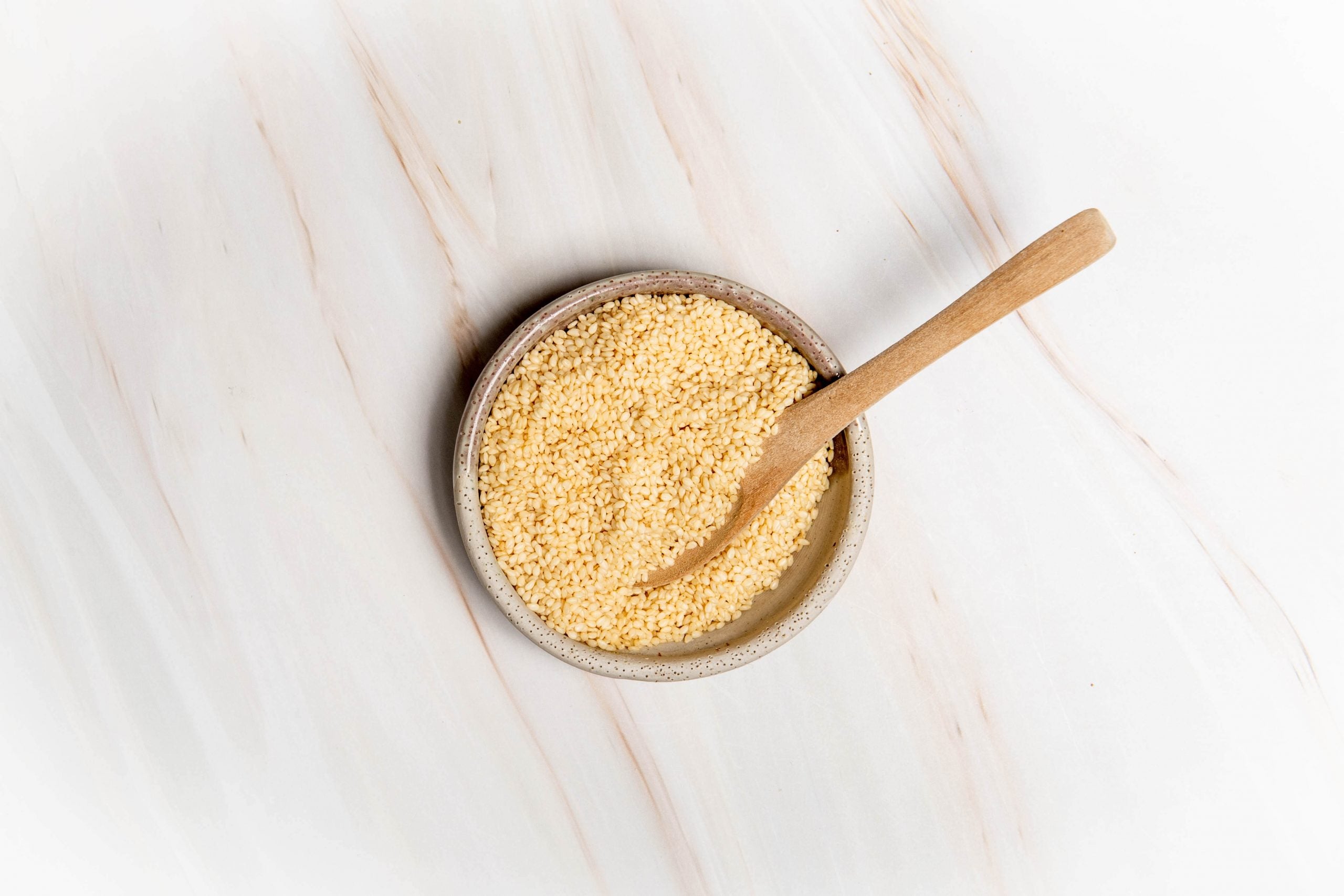Nutrients in seed cycling seeds and their benefits. Seed Cycling involves eating different types of seeds at different phases in the menstrual cycle or moon cycle, to naturally balance hormones.
In the first half of the cycle you consume flax and pumpkin seeds to help regulate estrogen, and in the second half you consume sesame and sunflower seeds to help regulate progesterone.
In this article we’ll talk about all the nutritional benefits of the seeds involved in Seed Cycling, and why they’re so beneficial for hormone balancing and for overall good health.
All seeds are highly nutritious, with fibre, protein, minerals, healthy fats, and antioxidants.Here are some of the specific benefits of Seed Cycling seeds:
Lignans
Flax seeds and sesame seeds are sources of lignans, which are precursors to phytoestrogens. Phytoestrogens can help regulate estrogen levels in humans, and in particular they may inhibit estrogen levels from getting too high in the luteal phase.
Omega-3 Fatty Acids
Flax seeds and pumpkin seeds are also sources of omega-3 fatty acids, which are anti-inflammatory, and important for liver function, muscle function, mental health, brain function, eye health, and heart health.
Magnesium
Flax, pumpkin, sesame and sunflower seeds are all good sources of magnesium, which is needed for breaking down estrogen for elimination, gut function, muscle function, sleep, and mood.
The anti-inflammatory nature of both omega-3 and magnesium, and their role in muscle health make them important for improving period pain.
Zinc
Pumpkin and sunflower seeds are sources of zinc, which increases production of follicle stimulating hormone (FSH) which triggers ovulation and the production of progesterone - so zinc is naturally progesterone-boosting.
Iron
Pumpkin and sesame seeds are sources of iron which is important for energy and nervous system health, and as it’s lost in menstrual blood it’s important to replenish your iron store each cycle.
Manganese
A strong antioxidant that’s essential for bone health and thyroid function, manganese is found in all seeds but pumpkin seeds are a particularly good source.
Vitamin E
Pumpkin and sunflower are sources of this powerful antioxidant that boosts progesterone and corrects progesterone-estrogen imbalances.
Selenium
Sunflower seeds are one of the best food sources of selenium, which is important for cognitive function, heart health, thyroid health, and is a powerful antioxidant. Selenium is also found in sesame seeds.
Calcium
Sesame seeds are a good source of calcium, which is needed for bone health, muscle function, nervous system function, and the release of hormones. Getting enough calcium can reduce period pain, because of its role in muscle function.
Fibre
All seeds are about 10% fibre (except chia seeds which are about 34% fibre!) We need fibre for proper digestion, and to feed beneficial gut bacteria for gut health.
Because the gut removes excess estrogen, a healthy gut and digestion is important for hormone balance. Fibre is especially important in the luteal phase because that’s when the body is removing excess estrogen. And, the progesterone peak in the luteal phase can cause constipation, so fibre is important to counteract this as well.
Fibre also keeps us feeling full for longer, and slows down digestion so we get longer lasting energy from our food - this keeps our blood sugar balanced which is good for hormone balance.
Healthy Fats
Seeds are a rich source of heart-healthy and anti-inflammatory polyunsaturated and monounsaturated fats, in addition to the omega-3 fatty acids we talked about earlier. The fat in seeds also helps to make them filling and keep blood sugar balanced.




The Seed Cycle nutritional benefits at a glance:
One scoop of The Seed Cycle Phase 1 gives you:
More than 100% of the recommendation for omega-3 (ALA)
25% of your daily magnesium
14% of your daily manganese
12.5% of your daily zinc
7% of your daily iron
6% of your daily selenium
One scoop of The Seed Cycle Phase 2 gives you:
47% of your daily vitamin E
20% of your daily magnesium
10% of your daily calcium
9.5% of your daily iron
6% of your daily selenium
6% of your daily zinc

By Alison Loeliger
Alison is a Canberra-based nutritionist, nutrition writer, and mum of two boys. She loves to demystify and simplify nutrition for her clients, and works with women wanting to improve their gut health, hormone balance, perimenopause symptoms, energy, IBS, and more. Alison has a Bachelor of Human Nutrition from the University of Canberra and has completed Monash University’s IBS and FODMAPs training. When she’s not working, she’s searching for the perfect almond croissant, hiking, or obsessively looking after her houseplants. You can find Alison at alisonloeliger.com
